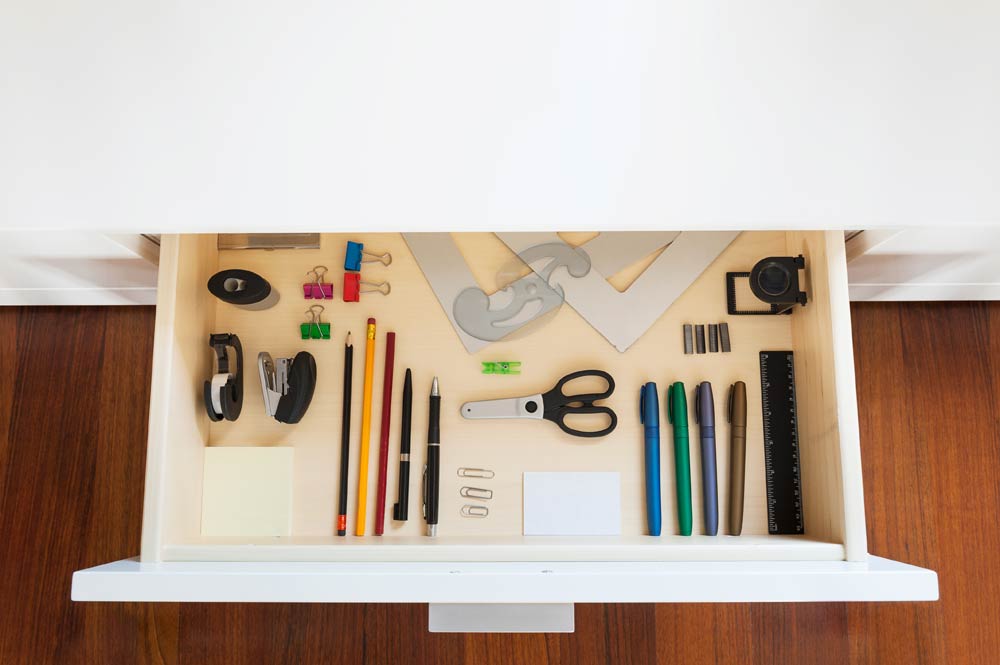 Students trying to go from good to great in their school work will benefit from employing strong executive function skills. Developing these skills authentically happens over time and inherently includes behavior modification. Therefore, these skills, which include the ability to plan and organize time and work; the ability to initiate and complete a task; the ability to shift gears/sets depending on the situation; the ability to organize or impose order on work and play storage spaces; and the ability to self-monitor performance and attention are best taught in contextualized, meaningful, and authentic situations. There is no scripted curriculum. Developing executive function skills is all about developing situational intelligence and planning with the end in mind. Students need opportunities to develop lots of different strategies, much like tools in a toolbox, so that they can customize their approach, or “fix”, as each situation presents itself. Our most successful students ultimately demonstrate reflective, strategic thinking that develops along with a student’s increased metacognitve awareness. This work is facilitated by a skillful team with expertise in pedagogy, psychology and executive function coaching, and it progresses through modeling, guided instruction, and independent practice.
Students trying to go from good to great in their school work will benefit from employing strong executive function skills. Developing these skills authentically happens over time and inherently includes behavior modification. Therefore, these skills, which include the ability to plan and organize time and work; the ability to initiate and complete a task; the ability to shift gears/sets depending on the situation; the ability to organize or impose order on work and play storage spaces; and the ability to self-monitor performance and attention are best taught in contextualized, meaningful, and authentic situations. There is no scripted curriculum. Developing executive function skills is all about developing situational intelligence and planning with the end in mind. Students need opportunities to develop lots of different strategies, much like tools in a toolbox, so that they can customize their approach, or “fix”, as each situation presents itself. Our most successful students ultimately demonstrate reflective, strategic thinking that develops along with a student’s increased metacognitve awareness. This work is facilitated by a skillful team with expertise in pedagogy, psychology and executive function coaching, and it progresses through modeling, guided instruction, and independent practice.
Our faculty at My Learning Springboard believes strongly in meeting students where they are and building on their strengths in order to develop or strengthen their executive function skills. It is this approach that puts our students ahead of the rest. Many students struggle for reasons that go beyond the content itself, which includes not being able to manage the meta-work of being a student. They struggle to maintain their train of thought when they don’t have their materials clearly organized and easily available and have to expend time and energy looking for them. Students are often technically aware they have a big test coming up on Thursday, but, while it seems too far away to begin studying on Monday, it looms as an unapproachable, discouraging impossibility on Wednesday night. These students could master their subject content if they could better master time management, work prioritization, their physical or digital workspace, and their ability to plan into the future and sub-task.
The goal of an executive function coach is to help students to identify inefficiencies or pitfalls in their strategic planning and to cooperatively develop and implement systems that mitigate these challenges. For example, a student who struggles with implementing quotations in his essays will be coached throughout the writing process on developing organizational skills, not only for him/herself, but for the essay as well. We might try keeping a quote journal for future reading so the process of analyzing quotes in writing can be both practiced and streamlined. Another student may need to schedule regular meetings with a teacher for support before, during or after school, but making that happen could be an overwhelming process. An executive function coach might cooperatively review the student’s calendar/schedule and help identify when the meetings could occur, as well as guide the student to respectfully initiate the request. We help our students develop their executive function skills by ‘seeing’ into the future and using that information to inform their current and future actions. And while many students are technologically savvy, they aren’t necessarily technologically strategic or digitally organized. Optimizing applications so that they’re assistive and identifying new technologies to facilitate effectiveness is often a huge part of our approach to executive function coaching.
Developing executive function skills authentically through strategic use of school work, extracurricular activities, and responsibilities at home is the best and most meaningful approach for students. Our goal is for strategic and timely practices to become internalized for each student, which happens over time. Once internalized, the student should be able to independently determine, for example, when teacher meetings are necessary, know how to budget time effectively and know how to attack the metacognitive challenges of learning. An executive function coach can help set clearly communicated expectations to both the student and his or her family as well as to form a culture of accountability over time.
By Brad Hoffman, Board Certified Educational Planner and Learning Specialist, and Laurie Gross, Educational Consultant and Reading Specialist.